Research themes
We have five research themes.
Assistive technology
Research theme overview
We research technologies aimed at enabling individuals, such as those with disabilities and the elderly, who face physical and social challenges, to engage in activities more conveniently and comfortably. Our work includes the development of a system that automatically generates accessibility maps based on people’s walking activities and their engagement in location-based interactive games, and a system that facilitates communication among individuals with visual and auditory disabilities.
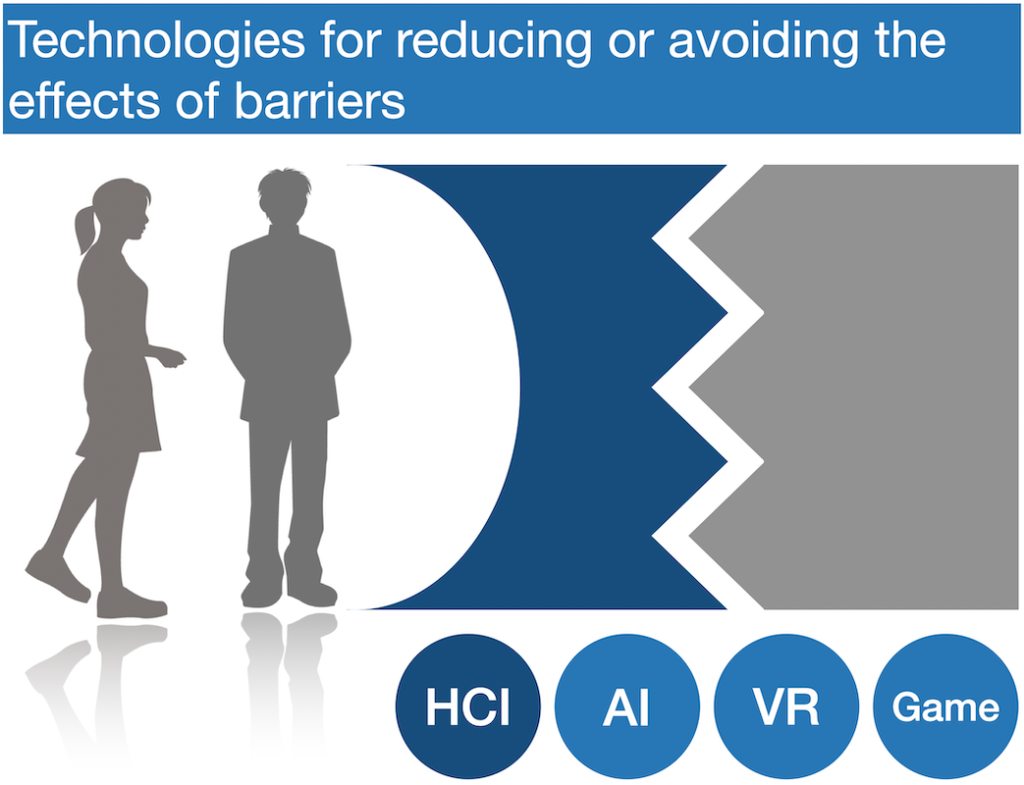
Projects
- BScanner: Crowdsourcing platform for constructing accessibility maps supporting multiple participation modes
- BSim: Low-cost and high-reality wheelchair simulator
- Tap Messenger: Interface for people with disabilities enabling communication only by tapping
Smart environment
Research theme overview
Combining AI and IoT, we research technologies that enable the system to provide appropriate assistance through simple user operations or unconscious actions by individuals. Our work includes developing smart home systems, featuring innovative drawers that can locate stored items and intelligent doors that can provide weather forecasts. We are also developing paper media systems that display relevant information using torn edges or arrangements of text on paper.
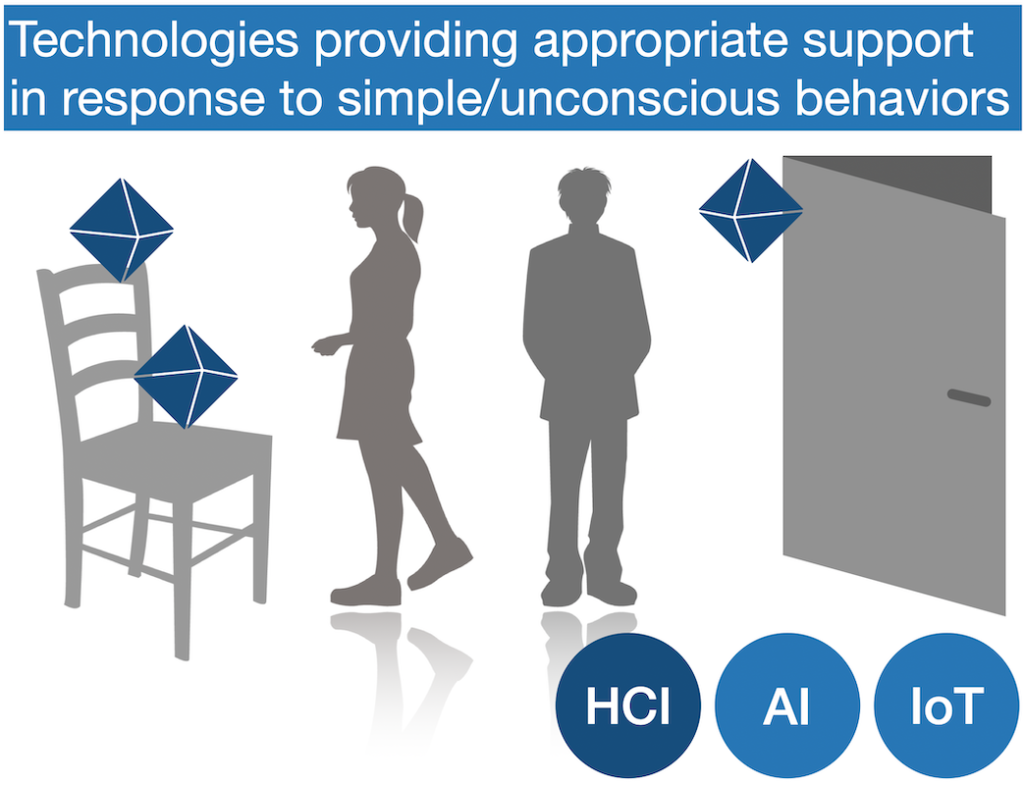
Projects
- FINDrawers: Drawers capable of locating stored items
- xSeal: Compact device capable of making pieces of furniture intelligent
- mimiconne: Digital signage enabling content selection by mimicking movements
- Tornedge: Method for transferring electronic information by tearing and handing over paper
- Kappan: Book location identification technology connecting physical books and digital media
Behavior analysis
Research theme overview
Using cameras and sensors, we analyze and model human behavioral patterns to explore more efficient methods of communication. By conducting multimodal analysis of facial expressions, voice, and spoken content, we scientifically identify the requirements for effective praise. Additionally, we detect scenes of heightened discussion during communication based on the analysis of brainwave data.
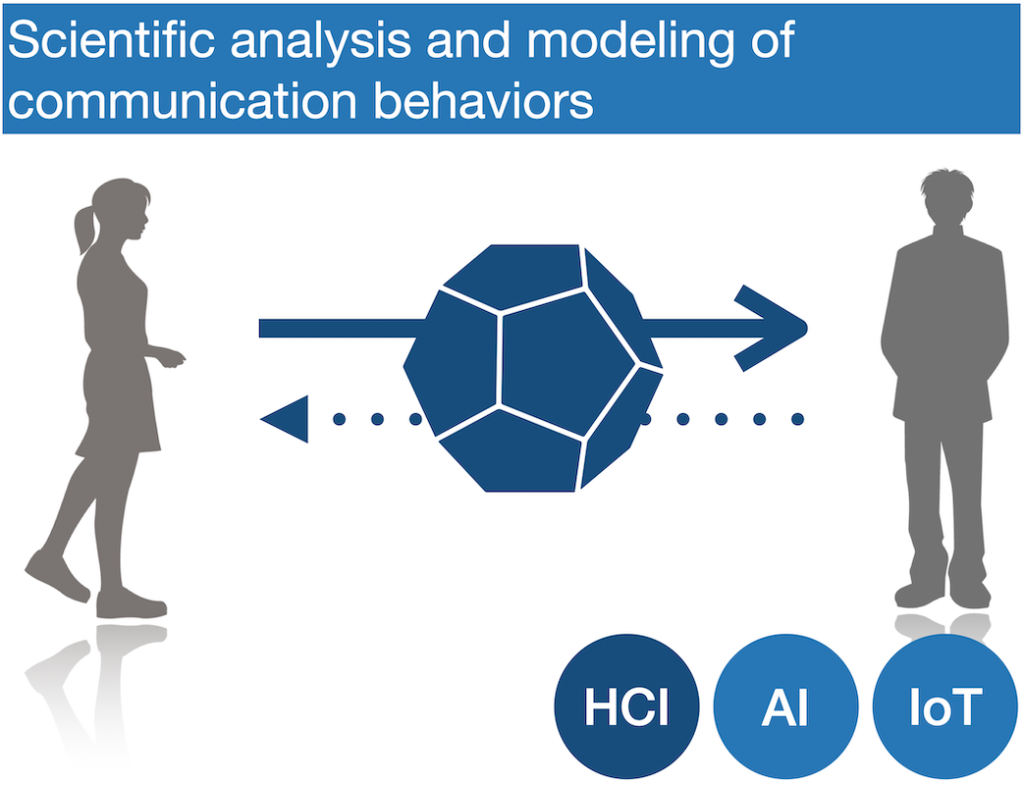
Projects
- Praiser: Modeling of effective praising behaviors
- MS-Analyzer: Communication analysis based on thinking state estimation
Communication system
Research theme overview
We study communication systems that take into account delicate user psychology, focusing on minimizing feelings of embarrassment and guilt. We are developing co-working space systems that facilitate gradual self-disclosure even among strangers, and video conferencing systems where the degree of facial blurring changes according to the level of familiarity.
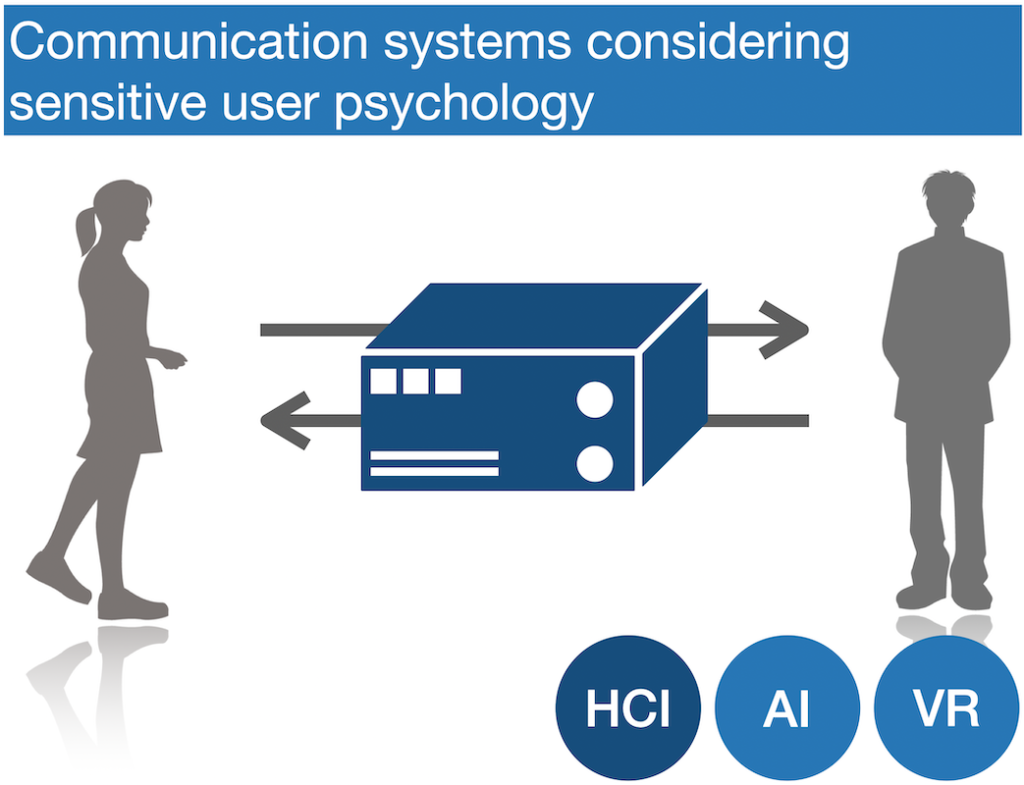
Projects
- HazyRooms: Video conferencing employing blurring to adjust anonymity levels progressively
- Meeting Viz: Method for visualizing conversation dynamics in remote meetings
- A/O Mediator: Approach for gradually altering anonymity levels in shared space communication
Friendly AI
Research theme overview
We research methods to realize AI that is not necessarily fast or accurate, but AI that humans find easy to feel familiarity with. We are developing conversational agents that employ humor techniques such as boke and tsukkomi based on the art of Manzai, as well as agents that express empathy through ambiguous movements.
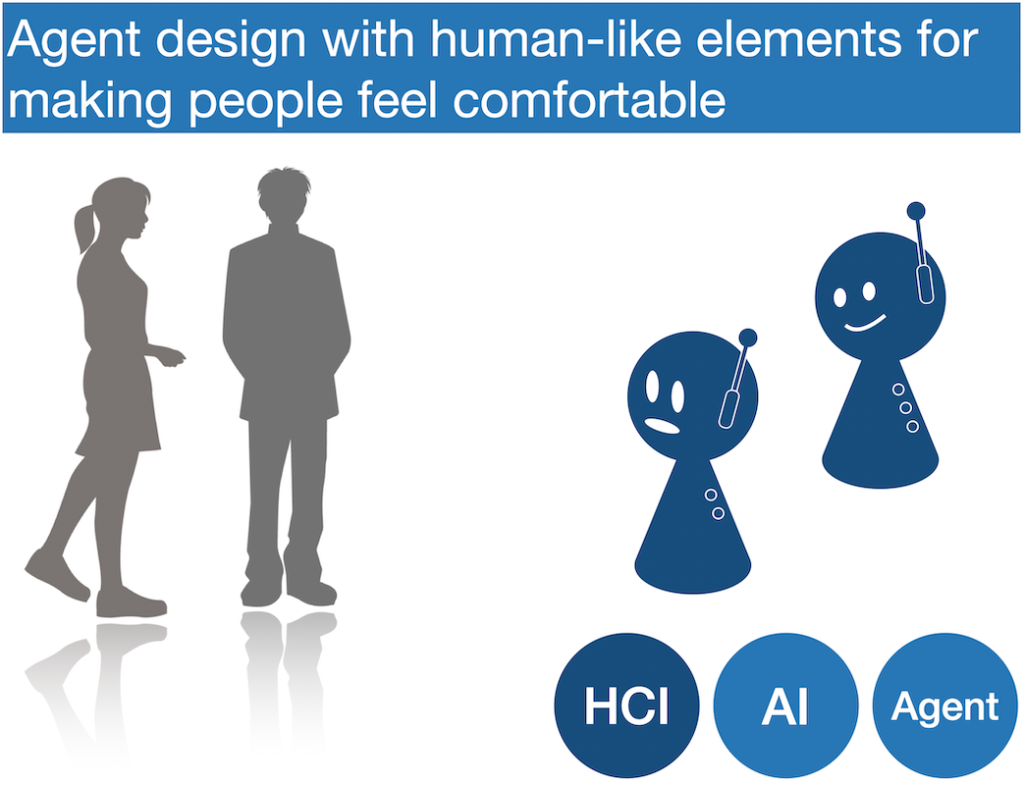
Projects
- Joker: Conversational agents performing humor techniques of boke and tsukkomi
- Vague Agent: Agents expressing empathy through movements with a high degree of ambiguity